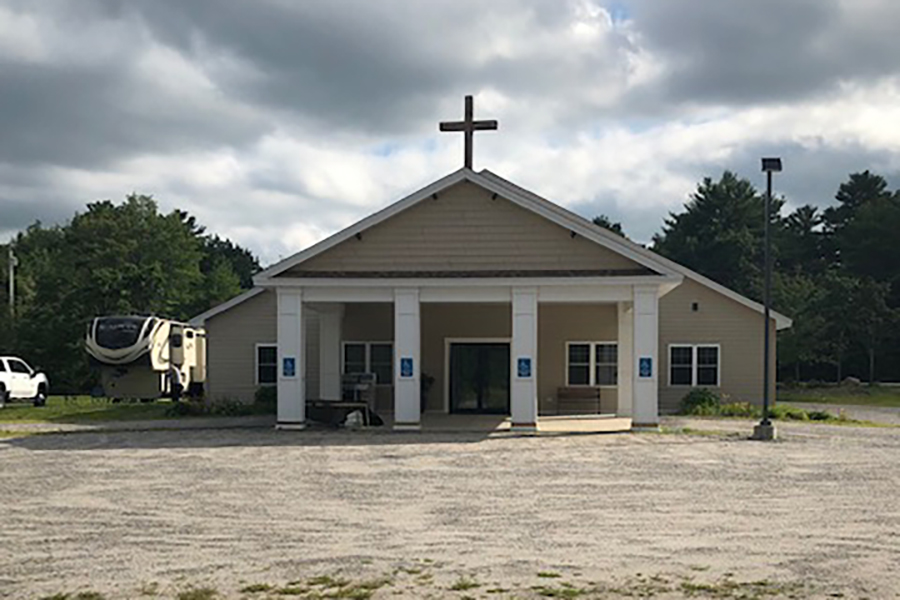Church revitalization certificate program equips consultants for Kingdom growth


In June 2021, when Mike Smith retired as the president of Jacksonville College in Jacksonville, Texas, he and his wife, Susan, already knew how God was leading their next steps. The couple had recently sold their East Texas home and purchased a 42-foot, fifth-wheel trailer and a heavy-duty pickup truck so they could make themselves available to go “wherever God wanted us to go to help revitalize churches,” Smith says.
Though he had served in pastoral, director of missions, and state convention leadership roles for almost 40 years—and holds three doctorates—Smith enrolled in the certificate in church revitalization program at Southwestern Baptist Theological Seminary in order to best prepare himself to consult churches in need. Having completed the program, Smith will be the first certified consultant when he graduates this spring.
The certificate, offered through Southwestern’s Hemphill Center for Church Revitalization, was launched in 2020 to train ministers how to be consultants, says Kenneth Priest, director of the Hemphill Center and one of the program’s instructors.
The goal of the program is to equip ministers to assess the key areas of preaching, worship, evangelism, discipleship, leadership, and pastoral ministry, Priest explains. The program’s course of study includes five classes and the six key areas are taught by Southwestern Seminary faculty through three of the classes. The remaining two classes are focused on an introduction to church revitalization and contextualized strategic planning in church revitalization.
“I am thankful for the influence our church revitalization consulting certification is having in the life of the churches as we seek to equip ministers who will lead churches to become more biblically faithful and missionally effective,” says Michael Wilder, dean of the Jack D. Terry School of Educational Ministries which houses the Hemphill Center. “This certification process is well designed to aid church leaders in examining their current ministries and rethinking how best to reach and disciple their communities.”
The program, which spans two years, teaches the students about the various tools and resources available in each of the six key areas while learning in a cohort setting. Once five classes are completed, students design a revitalization strategy for a specific church. When the strategy is approved by Priest, the student earns their certification.
Priest says the training enables the graduates to consult with a church for Kingdom purposes as they help assess effectiveness.
As the certified consultants work with churches, they first assess if the church is “effective in their evangelism and discipleship strategies and, if not, how we can help them become effective,” Priest explains. “If you’re going to be effective at growing a church, then the pastor has got to be able to rightly handle the Word in an effective way,” and the worship experience must be a “quality biblical experience.”
After evaluating and assessing the church, consultants are able to apply what they learned in their classes as they make pastors and church leadership aware of resources and tools that will enhance the work and ministry of the church.
Smith has been able to utilize the tools, skills, and resources he learned through the certificate program as he has served as the interim revitalization pastor at Living Stone Community Church in Standish, Maine. Since his arrival in July 2021, he has applied what he learned in the areas of evangelism and discipleship.
The church, which was averaging a weekly attendance of 25 people, has hosted several event evangelism opportunities, including two community-wide picnics and two blood drives. The events attracted people from within the community and enabled church members to begin building relationships. The church’s recent Christmas Eve service included 75 people in attendance – the largest in the church’s history.
Smith says as he has loved the people, read Scripture, preached the Word of God, and told others about Jesus, “the Lord has blessed” and the church is now running an average weekly attendance in the 60s, has seen 20 people baptized, and the church gave almost $4,000 to the 2021 Lottie Moon Christmas Offering, which was more than double the church’s goal. Smith has also challenged the members of the church to each reach one lost person with the Gospel in 2022 as part of “Who’s Your One?” – the North American Mission Board’s emphasis on evangelism.
While COVID-19 sidelined some of the church’s regular meetings, in recent months the church has started a number of Bible study and prayer groups. The groups have met in-person and on Zoom. Additionally, Smith says, a number of men have been called to preach and he was able to teach them in a preaching class.
Smith says his three primary emphases in Maine have been in prayer, evangelism, and discipleship because of the importance of “those three things if you are going to revitalize a church.”
The “excellent program” at Southwestern Seminary “provided me with some other resources I didn’t know about,” Smith says. He encourages others to seek certification to help churches who need revitalization.
“The need is tremendous,” Smith concludes, noting 75 to 80 percent of churches are plateaued or declining. A “great need right now is for revitalization pastors – men who will stay with a church for a while and see it revitalize.”
Enrollment in the certification program is currently open for the next cohort which will begin in February 2022. Prospective students from any educational level may apply. More information and registration can be found here.
Learn more about the Hemphill Center for Church Revitalization in this video.



